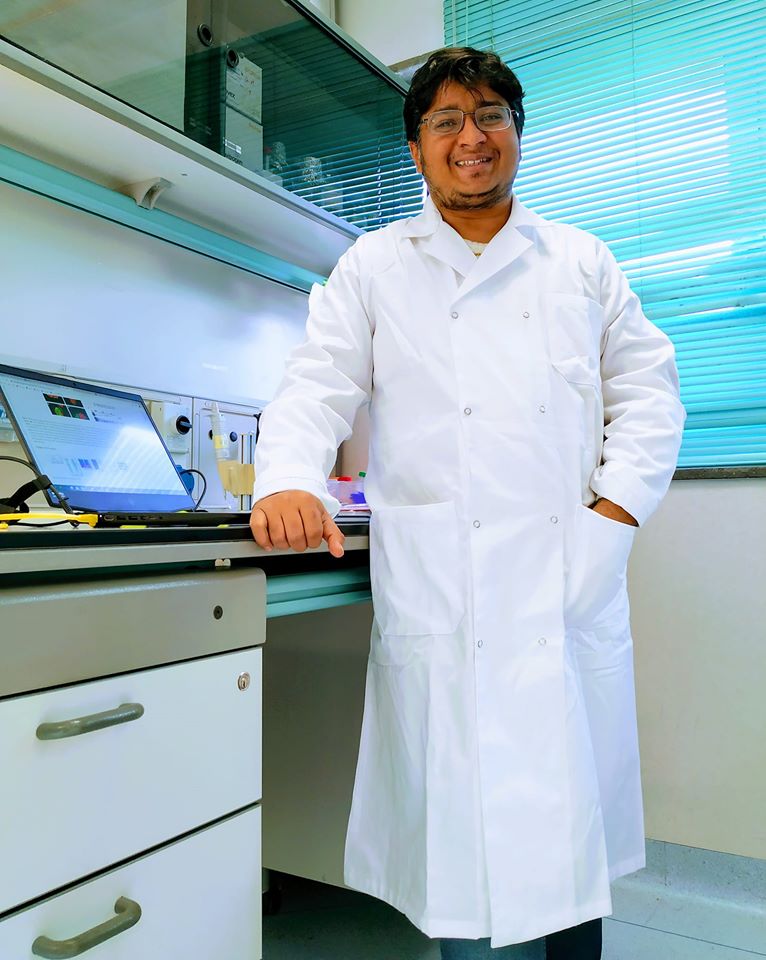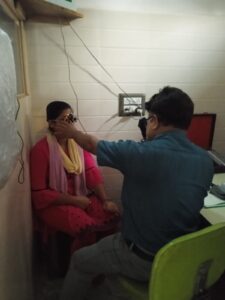A conversation with Dr Partha Pratim Majumder on India’s biomedical genomics – dreams and challenges ahead (Part 1)

By Utsa Bhaduri NHI, February 6, 2020

Dr Partha Pratim Majumder, Founding Director of National Institute of Biomedical Genomics (NIBMG), India, is an acclaimed statistical geneticist and genomicist, and the incumbent President of Indian Academy of Sciences, Bengaluru. He is also an organizing committee member of The Human Cell Atlas, an international project that is expected to “impact almost every aspect of biology and medicine”. Dr Majumder, also one among the rare scientific characters of India, who moved to pursue a research career in biological sciences during 1980’s after having secured a Bachelor’s, Master’s, and a PhD in Statistics from Indian Statistical Institute (ISI), Kolkata! Today, he is highly regarded for his scientific research capability that integrates biology with quantitative sciences, and also for his outstanding institution building capacity that has helped in producing a bouquet of new generation researchers in India.
Q. First, let me congratulate you for your recent publication from the pilot phase of GenomeAsia 100K Project that has been featured on the cover of Nature. As highlighted, this large-scale genomic study will help “to capture the broadest wealth of genetic diversity” among Indian and Asian population. But at this juncture, if we move from population genomics to personal-level genomics then what are the biggest challenges you feel that India is yet to face before it enters the era of personalized medicine?
A. Well, still now, there is no sufficient or overwhelming evidence for the clinical success of personal genomics. Although there are some successes in the context of cancer and other complex disorders, what I want to say, that is not overwhelming yet. As it’s personal, not generic, so both diagnostics and drugs will be expensive, at least initially. But it does not mean I am being negative. For sure India is, slowly but steadily, entering the era of personalized medicine. I am optimistic because family of cancer patients end-up with spending a lot of money for unsuccessful treatments but if personalized medicine comes, even though it will be expensive, people can be more assured about the final outcome of the treatment. This is where I am optimistic about personalized medicine, and its future in India
Q. If we keep aside cancer, do you think personal genomics, in the context of rare diseases, will be an even bigger challenge?
A. Yes. For sure, in case of rare diseases, it’s going to be a much bigger challenge in contrast to more common diseases such as cancer. First, a mutation has to be defined in a family within a population with deep Next Generation Sequencing (NGS), and then it has to be followed up with proper diagnostics and personalized medications. And what I see in India, drug companies are also not much interested in putting their money into the research of rare diseases, primarily, due to the lack of market potential. So, altogether it’s a much bigger challenge in case of rare diseases.
Q. Eric Lander, the leading giant in genomics, received a PhD in Mathematics from Oxford in 1981, and later, in his career, moved to carry out research in biological sciences. You also received a PhD in Statistics in 1982 from Indian Statistical Institute (ISI), and today you are a geneticist. Do you think in today’s biological science research we need much more quantitative training to address complex biological problems?
A. I think it’s absolutely critical and crucial to bring more quantitative graduates in biological sciences. Today’s biology and genetics is highly quantitative, especially, in context of human diseases. We require knowledge from multiple domains to solve today’s challenging biological problems. Biologists of today require a lot of quantitative and statistical thinking, and the research requires a greater involvement of people having quantitative and computational training.

Q. India is really lacking in biological software development, although India’s IT capability is highly matured, especially in cities like Bangalore and Hyderabad. How will you justify this contrast?
In India, to develop such kind of softwares required for biological research we need prior methodological development. I think that methodological development is not happening in India for two reasons. First of all, in India, we need computer scientists and statisticians who really understand biology; and I feel that is a real challenge for India. Secondly, to do methodological development for writing the codes you need access to the technology right from the beginning but in India we are pretty late to know about those technologies, whereas in institutes like Broad (Broad Institute of MIT and Harvard) biologists and programmers got exposure to the technology even before it was marketed. So, we need a combination of skill-sets from biology and computing, and we need the early-exposure to the technology. And that is not happening in India, and I doubt it will happen in the next twenty years.
Q. Why do you think MD-PhD or making of physician-researchers is still a dream in India?
To be continued…
This interview conducted and condensed by UTSA BHADURI, a Marie Sklodoska-Curie PhD Research Fellow in the Horizon 2020 TRIM-NET Innovative Training Network (ITN) of European Commission
Photo Courtesy: NIBMG, Kalyani
Meet the author: Utsa Bhaduri

Utsa Bhaduri, is a Marie Sklodowska-Curie Fellow, and Early Stage Researcher (ESR) within the Horizon 2020 TRIM-NET Innovative Training Network (ITN) of European Commission. He received bachelor’s degree with a triple major in Biochemistry, Biotechnology, Genetics from Bangalore University, India, and studied master’s degree with a double major in Bioinformatics and Applied Biotechnology at Institute of Bioinformatics and Applied Biotechnology (IBAB), Bangalore Biotech Park under the aegis of University of Mysore, India. During his master’s years he voluntarily worked for Bangalore India Bio, India’s largest biotechnology exhibition, and also completed a six-month internship with OmiX R&D, a biotech start-up incubated at IBAB/Bangalore Bioinnovation Centre. After completion of his master’s he moved to Jawaharlal Nehru Centre for Advanced Scientific Research (JNCASR) to work with Padma Shri award-winning Indian scientist Prof. M.R.S. Rao as a Junior Research Fellow (JRF). He worked with Prof. Rao between August of 2016 and September of 2019 for three years in the areas of Cancer Genomics, lncRNA Bioinformatics, and Epigenomics where he received contributing authorship in five published research papers in peer-reviewed journal, and four publication-level manuscripts. While working with Prof. Rao he was also selected for Bharat Boston Biosciences Beginnings (B4) genomics programme of Harvard University Lakshmi Mittal South Asia Institute (LMSAI). He also voluntarily worked under Dr. Gayatri Saberwal, Dean of IBAB, to organise Start-Up Bio 2017 at IBAB/Bangalore Biotech Park. In 2019, as the convener, with support from Indian billionaire Kris Gopalakrishnan, and the SwissNex India, he organized JNCASR Life Science Fest, a two-day event that explored multiple career opportunities in life sciences for PhDs. Same year, he was awarded Marie Sklodowska-Curie Fellowship for pursuing PhD, and presently he is working with Italian Medical Geneticist Dr. Giuseppe Merla at the Casa Sollievo della Sofferenza Hospital, and pursuing PhD in Molecular Biomedicine at University of Trieste, Italy.






